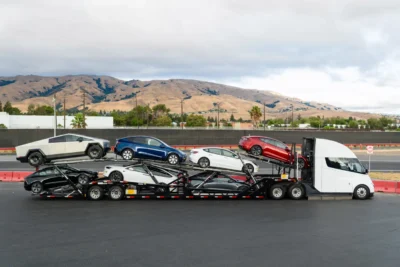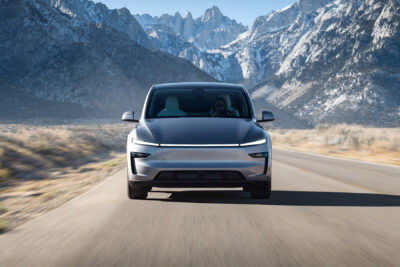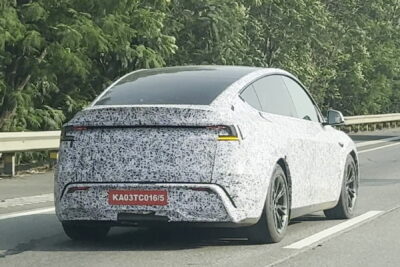Toyota, University of Stuttgart, DLR, Tesla, ElectroGraph.
Toyota asks for exemption: The carmaker appealed to the American NHTSA, asking to circumvent a safety rule that requires the isolation of high-voltage parts in EVs in the event of a crash. The reason, Toyota says, is that it renders its FCV inoperable. Instead, the company proposes to uses metal barriers to isolate battery, motor and fuel-cell stack. The NHTSA has yet to respond.
autoblog.com, transportevolved.com
Induction instead overhead lines: Researchers at the University of Stuttgart and the German Aerospace Center (DLR) are testing the possibility of transmitting energy inductively for railroad vehicles. The state of Baden-Württemberg supports the ‘DLR@Uni-Stuttgart’ programme with 860,000 euros in funding.
idw-online.de
Tesla says no to aluminum: Unlike the Model S, the car formerly known as Model E will use cheaper materials instead, to keep the vehicle more affordable. Which ones has yet to be confirmed. But since keeping costs low is a top priority, aluminum will most likely not be replaced by carbon-fibre reinforced plastic.
autocar.co.uk, transportevolved.com
Super supercapacitors: Developed by the EU-project ‘ElectroGraph’ these store electrical energy as charged particles attached on the electrode material. Researcher therefore created electrodes with a larger surface, to increase energy storage capabilities. The project is headed by Fraunhofer IPA and includes ten partners from both research institutes and industries.
phys.org
– Feedback –
The most clicked link on Tuesday was our reading tip on why Tesla’s Model X could become its fastest-selling car.
fool.com




0 Comments